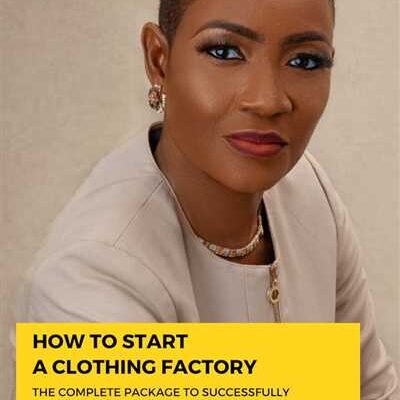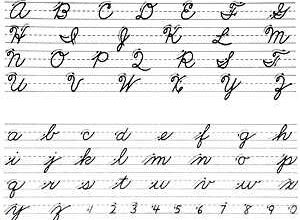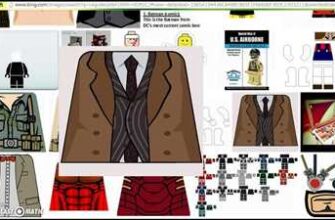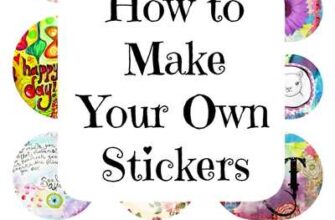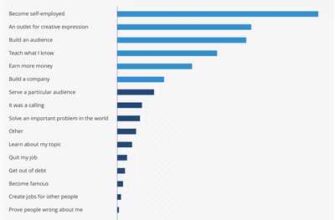
Are you sure you’re ready to take the plunge into the fashion business? When starting your own clothing company, it’s always important to communicate clearly with your suppliers and manufacturers. You need to ensure that they understand your requirements and are able to produce high-quality products on time.
Deciding whether to work with domestic manufacturers or overseas suppliers can be a challenging process. While working with overseas suppliers may lower your costs, there are also hidden expenses, such as higher shipping and import regulations to comply with.
If you’re a small startup looking to produce smaller runs of custom clothing, a domestic manufacturer can be a great option. They can help you uncover the current market trends and ensure that your products are made with a sense of sustainability.
Working with a custom clothing manufacturer can offer many benefits. They have the experience and expertise to bring your ideas to life, while also ensuring that the quality of your garments is top-notch.
When deciding on a supplier or manufacturer, it’s important to talk to them and ask about their process, minimum order requirements, and pricing. A good supplier will always be transparent and help you understand the costs involved.
So if you’re ready to start your own clothing factory, take the time to find the right supplier or manufacturer. With their help, you can start selling your fashion products and make a mark in the industry.
How to start a clothing company manufacturing
When starting a clothing company manufacturing business, there are several steps you should consider to ensure success. It will require time, effort, and a keen understanding of the industry. In this guide, we will outline the essential aspects you need to know to get started.
1. Research and planning: Before deciding to start a clothing company manufacturing, it is crucial to research and understand the market trends, customer needs, and competitors. This knowledge will help you identify opportunities and develop a unique selling proposition.
2. Define your niche: Determine whether you want to produce custom-made clothing or focus on a specific clothing category such as fashion or sportswear. Clearly defining your niche will help you target the right customers and set your brand apart.
3. Find reliable manufacturers: Look for manufacturers who can deliver high-quality products at a competitive price. While overseas manufacturers can offer lower production costs, working with domestic suppliers has its benefits, such as easier communication, minimum order requirements, and the ability to ensure compliance with regulations.
4. Ensure product quality: Quality is a crucial factor in the clothing manufacturing business. Find manufacturers who have a good track record of producing high-quality garments. You can do this by asking for samples and grading their work. Investing in quality control processes will help you maintain consistent standards.
5. Consider sustainability: Many clients and consumers are now more conscious of the environmental impact of the fashion industry. Incorporating sustainability practices, such as using eco-friendly fabrics or ensuring fair trade practices, can help you attract a larger customer base.
6. Manage costs: Starting a clothing company manufacturing can be expensive, so it is essential to manage your costs effectively. Keep track of your expenses, negotiate prices with suppliers, and always look for ways to optimize your production processes.
7. Market your business: Once your clothing manufacturing business is up and running, you need to promote your brand to attract customers. Utilize social media, create a compelling website, and collaborate with influencers or fashion bloggers to increase your visibility.
8. Stay updated with industry trends: The fashion industry is constantly evolving, and it is crucial to stay updated with the latest trends and consumer preferences. Attend trade shows, read fashion magazines, and follow influential designers to ensure that your clothing company manufacturing remains relevant in the market.
Conclusion: Starting a clothing company manufacturing can be a daunting task, but with the right planning and execution, it can also be a rewarding venture. By following these steps and continuously improving your processes, you can build a successful clothing manufacturing business and thrive in the competitive fashion market.
Fashion Startup Clients
When starting a clothing factory, it’s important to understand the type of clients you will be working with. In the fashion industry, there are a variety of clients including startups, small businesses, and larger companies. Each client has their own unique requirements and needs.
Startups are often looking to produce smaller runs of their products while they test the market and build their brand. They may also have specific sustainability or social responsibility goals they want to be met, such as using fair-trade or domestically made materials. These clients may not have as much experience working with manufacturers, so they will rely on your knowledge and expertise throughout the process.
Small businesses often have established products and a current client base. They may be looking to produce larger quantities of their garments in order to expand their reach in the market. These clients may have higher quality standards and will expect their products to comply with all regulations and grading requirements.
Larger companies may have their own manufacturing facilities, but they may also choose to work with startups or small businesses for custom runs or to diversify their product offerings. These clients typically have a sense of what they’re looking for and will communicate their requirements and expectations clearly.
Regardless of the size of the client, it’s important to ensure effective communication throughout the manufacturing process. This will help uncover any hidden costs or issues that may arise and will help you build a sense of trust with your clients.
Working with fashion startup clients can be both challenging and rewarding. It allows you to be a part of the growth and success of these companies while also providing opportunities for your own business. By understanding the unique needs and requirements of each client, you can deliver high-quality products that meet their expectations.
Always remember that working with fashion startup clients is a two-way street. It’s important to find suppliers and manufacturers who align with your company’s values and can help you produce quality products while keeping costs lower. By doing so, you will ensure the success of your own clothing factory.
Domestic and overseas custom clothing manufacturers
When starting a clothing factory, it’s important to consider both domestic and overseas custom clothing manufacturers. Each option has its own set of benefits and considerations.
Domestic manufacturers are those located within your own country. Working with domestic manufacturers has several advantages. Firstly, it helps support the local economy and create jobs within your community. Additionally, it allows for easier communication and faster turnaround times, as there are no language or time zone barriers to overcome. Domestic manufacturers also often have higher production standards and comply with strict regulations regarding labor practices and environmental sustainability.
On the other hand, overseas custom clothing manufacturers can offer lower production costs and access to a wider range of products and materials. Many overseas manufacturers are located in countries where labor and operating costs are lower, which can translate to lower manufacturing costs for your business. These manufacturers often have large-scale operations and can handle larger orders. However, it is crucial to ensure that the manufacturer you choose meets the same quality and ethical standards you require.
When deciding between domestic and overseas manufacturers, it’s important to consider your specific requirements and priorities. If sustainability and supporting local businesses are important to you, working with a domestic manufacturer may be the better option. If cost efficiency and access to a wide range of products are key, an overseas manufacturer might be the way to go.
Regardless of the location, it’s essential to find a clothing manufacturer that meets your needs. Research potential suppliers and talk to other businesses in your industry to uncover hidden costs, current market trends, and the quality of products they produce. Make sure to communicate your requirements and standards clearly to the manufacturer to ensure they will comply with your expectations.
Custom clothing manufacturers can be a valuable asset for startups and small businesses looking to sell their own fashion products. Whether you decide to work with a domestic or overseas manufacturer, a thorough understanding of the manufacturing process, regulations, and grading is essential. Don’t be afraid to seek help from industry experts or consultants who can assist you in finding the right supplier for your business.
In conclusion, both domestic and overseas custom clothing manufacturers offer unique advantages and considerations. Understanding your business’s specific needs, the market you’re targeting, and the costs involved will help you make an informed decision on which option is best for you. Remember, always ensure that the manufacturer you choose aligns with your values and can deliver the quality products you require.
Domestic custom clothing manufacturers

When starting your own clothing factory, it is important to consider the sources for your garment production. While many startups may be tempted to work with overseas manufacturers to lower costs, there are also many benefits to working with domestic custom clothing manufacturers.
One of the main benefits of choosing a domestic manufacturer is the ability to communicate more effectively. When working with a domestic company, you can easily visit their facility and can be in direct contact with them for any inquiries or concerns that may arise. This allows for a more efficient and streamlined production process.
Moreover, domestic manufacturers comply with strict regulations, ensuring that the products they produce meet high quality and sustainability standards. This is especially important if you want to sell your clothing in the market. By working with a domestic manufacturer, you can be sure that your products will meet the expectations of your clients.
In addition, working with domestic manufacturers also helps support the local economy. By choosing to produce domestically, you are contributing to job creation and supporting local businesses. This sense of community and responsibility can create a positive image for your startup.
While it is true that domestic custom clothing manufacturers may have slightly higher costs compared to overseas suppliers, the benefits far outweigh the costs. Domestic manufacturers offer shorter lead times, reduced shipping costs, and the ability to uncover hidden costs that may arise when working with overseas suppliers. These cost-saving advantages can make a significant difference in the long run for a small, start-up business.
So, when deciding on a manufacturer for your clothing factory, always consider the advantages of working with domestic custom clothing manufacturers. They can help ensure the quality of your products, comply with regulations, and provide a sense of community and sustainability.
Overseas custom clothing manufacturers
When deciding to start a clothing factory, it is important to make sure that you find the right overseas custom clothing manufacturers. This is especially true for small startups who want to enter the market with high-quality products.
Many companies choose to work with overseas manufacturers because they can often produce clothing at a lower cost. However, there are some hidden costs and risks involved in working with these manufacturers. It is important to ensure that they comply with all regulations and standards, such as sustainability and fair labor practices.
Working with overseas manufacturers also means that you need to communicate and work with suppliers who may be in different time zones. This can add much more work and time to the manufacturing process. However, there are many benefits to working with overseas manufacturers as well.
One major benefit is the ability to find suppliers who can produce custom clothing to your specifications. This allows you to start your business with a unique product that will stand out in the market. Additionally, overseas manufacturers may have lower minimum order quantities, which is beneficial for small startups.
When working with overseas manufacturers, it is crucial to ensure that the quality of the products is up to standard. This can be done through quality control inspections and grading processes. It is important to establish a good relationship with your manufacturers and communicate your expectations clearly.
Some domestic manufacturers may offer higher quality products, but at a higher cost. It is important to weigh the costs and benefits to make a decision that aligns with your business goals.
In conclusion, when starting a clothing factory, deciding to work with overseas custom clothing manufacturers can be a great choice. There are benefits and challenges that come with this decision, and it is important to do your research and find the right manufacturer for your business.
Uncover the hidden costs
When you start a clothing factory, there are many hidden costs that you need to be aware of. One of the biggest challenges is understanding the costs associated with domestic manufacturing versus overseas production.
While it may seem like producing clothing overseas can be cheaper, there are actually many hidden costs that can quickly add up. For starters, communicating with overseas manufacturers can be difficult and time-consuming. Not only that, but there may be language barriers and cultural differences that can impede the production process.
In addition, overseas manufacturers often have higher minimum order requirements, which can be a challenge for small startups. This means that you may be forced to produce more clothing than you actually need, leading to excess inventory and wasted resources.
Another hidden cost is the quality of the products. When you work with overseas manufacturers, you may find that the quality of the clothing is not up to par with your expectations. This can lead to disappointed clients and a damaged reputation for your business.
On the other hand, domestic manufacturing has its own benefits. By working with a local manufacturer, you can have better control over the production process and ensure that your garments are made with a higher standard of quality. You can also visit the factory and see the process firsthand, which allows you to make any necessary adjustments or improvements.
Furthermore, by working with a domestic manufacturer, you are also helping to support the local economy and promote sustainability. You can ensure that fair labor practices are being followed and that your products are being produced in an ethical manner.
When deciding to start a clothing factory, it’s important to uncover these hidden costs and make sure that you choose the right supplier. By working with a domestic manufacturer, you can minimize costs, ensure quality, and meet all the necessary requirements and regulations.
So, if you’re ready to start your own clothing factory, make sure to uncover the hidden costs associated with overseas manufacturing and consider the benefits of working with a domestic manufacturer. You’ll be well on your way to building a successful and sustainable fashion business.
Sources
When starting a clothing factory, it’s important to find reliable sources for producing your fashion products. Here are some sources that can help you uncover the hidden gems in the manufacturing industry.
1. Domestic Manufacturers: You can start by working with domestic clothing manufacturers who can help you produce your garments. This will ensure better communication, lower costs, and faster turnaround time.
2. Overseas Suppliers: If your business runs on a larger scale, you may also consider working with overseas suppliers. While the costs may be lower, you need to ensure that they comply with the regulations and quality requirements of your current market.
3. Custom Manufacturer: Some startup clothing companies prefer to work with custom manufacturers. These manufacturers provide a higher level of flexibility and can help you produce garments that meet your clients’ specific requirements.
4. Fair Trade Suppliers: If sustainability is important to your fashion brand, you can opt for fair trade suppliers. These suppliers ensure that your products are made ethically and that the workers are paid fair wages.
5. Grading and Garment Manufacturer: Grading is an essential process in the clothing industry that involves creating patterns of different sizes for your designs. Working with a grading and garment manufacturer will help you ensure that your designs fit different body types.
By finding the right sources for your clothing factory, you can start your business with a sense of quality and ensure that your products sell well in the market.

